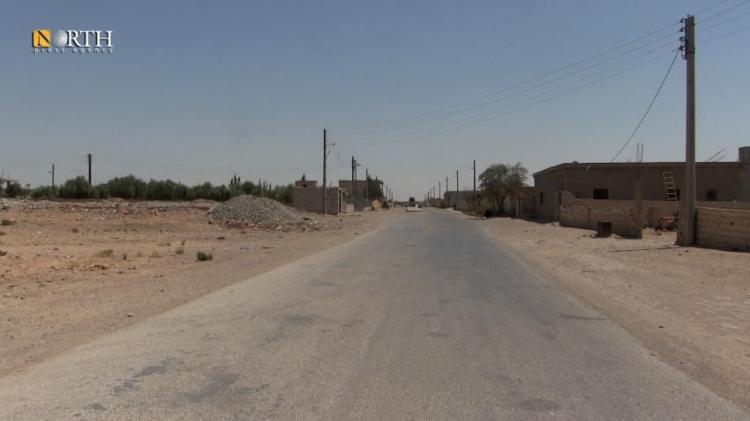RAQQA, Syria (North Press) – Residents of a village in the northern countryside of Raqqa resort to securing drinking water by buying it from the tanks due to the seventh consecutive year of water cutoff, which creates an extra burden for them.
Ismail Ali, like other residents of Yarmouk village 13 km to the north of the city of Raqqa, has been buying drinking water from the tanks for seven years after the water was completely cut off from the village, which caused a state of resentment towards concerned authorities.
Ali told North Press that "water has been cut off from the village for seven years in a row, and buying it is an additional burden for us in light of the difficult living conditions."
Ali added that “Water crises started since ISIS took control over Raqqa and the departure of Syrian government forces in 2013.”
“The price of a barrel of water is 300 Syrian pounds. In summer, one family needs at least two barrels of water, and three years since the liberation of Raqqa from the ISIS, our water situation has not improved," Ali added.
"We submitted more than a dozen complaints to the water office to solve this problem, but without interest, we are still buying drinking water," he told North Press.
Khaled Farhan al-Salloum, a local leader from Yarmouk village, attributed the main reason of the water shortage to the employees of Asadiya water station, who sold private water canals to farm owners located near the village’s main feeding line, so that the residents of the village would depend on water tank owners.
Yarmouk village is home to more than five thousand people, and the surrounding area, known as the Salihiya area, includes the largest number of private farms in Raqqa, which increased after the Syrian government left Raqqa in 2013. Most of the city's residents went to the countryside, escaping from indiscriminate shelling during that period.
Jassem Khalaf, head of the water office of the Local Administration and Municipalities Committee of Raqqa’s Civil Council, said that Asadiya station, which supplies the village with drinking water, was provided with a special line to supply it with electricity during June, working for 24 hours.
He added, "However, the water supply process for the village was not successful due to the expansion of the village, which has more than 300 houses, in addition to the village being located in a high area, which means the water pressure is too low to reach it.”
Khalaf stressed in an interview with North Press that water problem in Yarmouk village is at the top of the priorities for the water office for this year. "We will work to organize the roles while pumping water to the villages on this line, where screws will be put through which the water will be controlled and pressurized to reach the village of Yarmouk."

